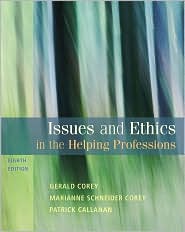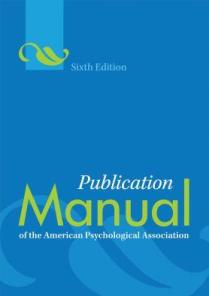




All official communication via the internet between the instructor and students must be accomplished via your Troy E-mail account. In accordance with Troy University policy, no other non-Troy E-mail addresses may be substituted. Because of this you must insure you have a working Troy E-mail address before the start of class.
(4) EXCELLENT APA Style Tutorial from the University of Michigian. Includes several excellent FLASH video instructions.
(5) A good APA Resource From NOVA Southeastern University.
(6) Another good APA Resource From Sacramento State University.
(7) Still another good APA Resource from the University of Southern Mississippi.
(8) And yet another good APA Resource from Long Island University.
CONTENT SOURCES: Content must be from peer reviewed professional sources, e.g., not the group's opinion, experiences, a co-workers thoughts, your agency's standards etc. Any questions ask me FIRST.
BE ON TIME!
FORMAT:
GRADING: All group members receive the same grade.
QUESTIONS: If you have ANY questions about the presentation ask me BEFORE the day of your presentation!!
American Psychological Association Code of Ethics
American Association of Marriage and Family Therapy Code of Ethics
American Mental Health Counselor's Association Code of Ethics
Ethical Standards for School Counselors
National Board of Certified Counselors Code of Ethics
Approved Clinical Supervisor Code of Ethics
Board of Certified Coaches Code of Ethics
American Association of Christian Counselors Code of Ethics
National Christian Counselors Association Code of Ethics
Counseling programs are full of "True" information regarding licensure, laws and rules, "mandatory" requirements etc. many of which are inaccurate. Student are encouraged to utilize the following links to go directly to the source instead of relying on third, fourth or fifth hand information.
Florida Board of Clinical Social Work, Marriage & Family Therapy & Mental Health Counseling
Florida Board of Clinical Social Work, Marriage & Family Therapy & Mental Health Counseling Intern Application and Information
Florida Clinical Social Work, Marriage & Family Therapy & Mental Health Counseling
Actual statutes are linked from here.
There are a number of national, state and/or central Florida organizations which offer students opportunities to become involved and begin developing professional networks. Many of these offer reduced fees for student membership. The list below is representative of some of the organizations Troy University students, alumni and/or faculty have recommended for your consideration
The Central Florida Association for Marriage and Family Therapy (CFAMFT) -- Meets the first Thursday of each month at 9 a.m. at St. John's Lutheran Church, 1600 S. Orlando Ave., Winter Park. Networking and short programs.
The Mental Health Association of Central Florida (MHACF -- meets the first Friday of each month at 9 a.m. at St. Richard's Episcopal Church, 7120 Lake Ellenor Drive, Orlando. Students are encouraged to attend. There are opportunities for networking and learning from short programs.
Florida Association for Marriage and Family Therapy -- Professional association for counselors interested in family and relationship therapy.
Florida Counseling Association -- Professional association for counselors and counseling students. Phone: 407-628-0793; Fax:407-628-0790; Post Office Box 300457, Fern Park, FL 32730
Florida Mental Health Counselors Association (FMHCA) -- Professional association for mental health counselors and students. 335 Beard Street, Tallahassee, FL 32303; Phone: 850-222-6000; Fax: 850-681-2890.
American Counseling Association (ACA) -- All students are encouraged to join at the student rate. Membership brings several important publications, student liability insurance, reduced rates at national conferences, and other important professional benefits. ACA has many divisions, each can be joined in addition to ACA, and each has its own journal. See the membership brochure in the inside pocket of this Handbook for detailed information about membership in ACA and its divisions as well as other related professional associations. Phone: 800-347-6647
American Psychological Association (APA) -- The APA also has a reduced student rate. Even if you do not plan on continuing with doctoral studies, the APA offers a tremendous number of resources and over 50 specialty oriented divisions. Depending on the student membership you select, you can have full text access to all APA journals and even books. Phone: 800-374-2721
American Association of Marriage and Family Therapists (AAMFT) -- Provides many professional benefits including annual conferences and publications. 1133 15 th Street N.W., Suite 300, Washington, D.C. 20005; Phone: 202-452-0109
American Mental Health Counselors Association -- Enhances the profession of mental health counseling through licensing, advocacy, education and professional development. 801 N. Fairfax Street, Suite 304, Alexandria, VA 22314 ; Phone: 703-548-6002 or 1-800-326-2642
American School Counselor Association (ASCA) -- P.O. Box 18136, Merrifield , VA 22118 ; Phone: 800-306-4722
National Board of Certified Counselors (NBCC) -- Information about certification and licensure requirements for counseling for each state. 3 Terrace Way, Suite D, Greensboro, NC 27403-3660; Phone: 336-547-0607.